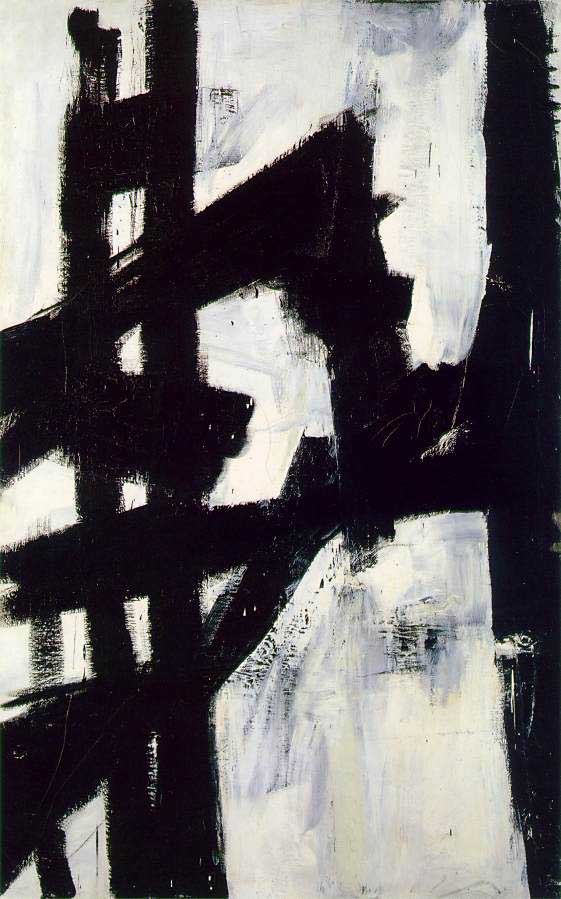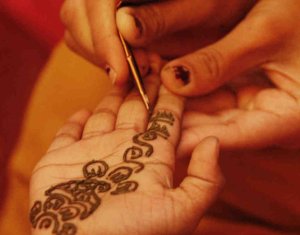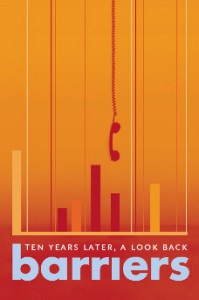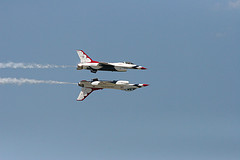Browns on a Plane is an American horror story not featuring Samuel Jackson and not coming to a theater near you, though it did make its way onto a Detroit-bound flight yesterday and may be replayed on select 9/11 anniversary flights as long as brown people continue to fly the fear-filled skies. To learn more about the plot of this real-life tale, read Shoshana Hebshi’s personal account of being on one of the two flights that were escorted by fighter jets to their destination yesterday on September 11–“Some real Shock and Awe: Racially profiled and cuffed in Detroit.” Hebshi is a self-described “half-Arab, half-Jewish housewife” from Ohio who sat next to two Indian men on the Frontier Airlines Flight 623, two men who used the restroom at some point during the flight.
Blue Scholars’ Bollywood Icon
Ha, ji! Ms. Rani Mukerji is a now a “rap music icon”!
Today’s #MusicMonday comes from Blue Scholars, the hip hop/spoken word crew out of Seattle. The song comes from their just released album Cinemetropolis, available for download on bandcamp. Each song on the album is named after a person, such as Yuri Kochiyama, Oscar Grant, and Anna Karina.
The duo — DJ Sabzi and MC Geologic — say the song ‘Rani Mukerji’ is a big hit at their live concerts. “Rani appears to be a powerful, intelligent woman and a cultural leader. She does a good job balancing her projected image with dignity and without allowing herself to be objectified,” says DJ Sabzi, adding his favourite Rani film is the 2002 hit Saathiya. [hindustantimes]
Hands down, Rani Mukerji is my favorite song on the album. As a Bangla speaker, I must say, it gives me a little thrill to hear feisty Bengali words in the catchy chorus. I expect I’ll be singing these words all week long.
How Will We Remember?
On this day I woke up to images of the twin towers falling on TV, eerily similar to what happened ten years ago at the same time. Deliberately, I’ve avoided the videos over the years, quickly changing the channel, images of people jumping from the building permanently embedded in my memory already. But today, I watched. I needed to be reminded, I guess. Where will we be in 300 years of remembering? This is Chee Malabar & Tanuj Chopra’s interpretation.
The video was created as a DVD insert to the Asian American Literature Review Tenth Anniversary of September 11th issue.
So many of our communities have borne witness to so much over the past 10 years; it behooves us to critically consider the moment and its aftermath—the various political, legal, and civil rights repercussions, particularly for the communities most directly affected, South Asian, Arab, Middle Eastern, and Muslim American. But how can we do so, when so many of the voices of affected communities remain unheard? [AALR]
You can order your copy of the AALR special issue online here now.
We are all Indians

Franz Kline's New York
I had been asleep when the first plane hit the World Trade Center’s North Tower. What woke me was the sound of my wife sobbing. A phone call had come from India, from an editor, asking me to write. So, that is how we learned about what had happened.
The piece I wrote that day had some anger in it, anger not only at the hijackers but at the Americans. This was the kind of thing that would be called “the chicken coming home to roost” argument. A few days later, in the New Yorker issue dedicated to September 11, with its famous black cover designed by Art Spiegelman, I read a piece by Amitav Ghosh. His brief essay told the story of a man, an engineer involved in the design of the Twin Towers, staying back in the building to help people escape. The man and his wife, both of whom worked in the destroyed buildings, were Ghosh’s neighbors. And Ghosh’s piece was filled with a kind of sad tenderness that made me feel ashamed about my rage. I felt as if I had arrived drunk at a funeral. Continue reading
The Philadelphia Inquirer Covers Indian Americans: Gets it 100% Right

Photo Credit: The Philadelphia Inquirer
Dear Editor Wischnowski,
I am writing today to thank you and the rest of The Philadelphia Inquirer team for your wonderful front-page coverage on the South Asian American community in the Sunday, July 3rd edition. The article titled “Indian population booming in Philadelphia area” certainly constitutes one of the finest pieces of research-driven feature-writing I have seen in quite some time. As one of the 477,586 Sunday readers of The Philadelphia Inquirer, I am thrilled to see that the third-oldest, eleventh-largest daily newspaper the United States continues to maintain its reputation as the Pulitzer Prize winning publication of its yore. With the advent of joke publications, such as The Onion, arriving in this town, it’s heartening to see some hard-hitting news in the Inquirer.
First and foremost, I would like to tip my hat to journalists Michael Matza and Joelle Farrell for their wonderful reporting. To echo the first quote in the article, “Stereotypes be damned.” Such breadth of interviewees! What segues! The software-developer. The dentist groom and the physician bride. The retired chemist. The civil engineer turned motel-owner. The managing partner. The real estate agent. And lest we grow too comfortable in our community’s affluence, the additional video on your website featuring the taxi driver. A moment of silence for this lone unskilled Indian American man who aspires to achieve the American dream. And a hat tip to you guys for featuring him! I bow to your benevolent reporting. Nick Kristof could learn something from you people. Continue reading
A Portrait of 9/11 from the Folks Behind Seven.11
 Barriers is the story of a family that lost a son in the tragedy of September 11, 2001. This theatrical production is by Desipina & Company, which also brought us seven years of Seven.11 Convenience Theater. At the Wall Street Journal, Aarti Virani takes a closer look at the inspiration behind Barriers, which was first performed in 2002, and is currently playing through September 18 in Manhattan.
Barriers is the story of a family that lost a son in the tragedy of September 11, 2001. This theatrical production is by Desipina & Company, which also brought us seven years of Seven.11 Convenience Theater. At the Wall Street Journal, Aarti Virani takes a closer look at the inspiration behind Barriers, which was first performed in 2002, and is currently playing through September 18 in Manhattan.
Just days after the 9/11 attacks, playwright Rehana Lew Mirza was heartbroken by what she encountered while walking in New York City. “I saw a flyer of a missing South Asian woman with holes burnt into the eyes and mouth,” she said. It was a seminal moment for the young artist and one that inspired her to pen “Barriers,” a raw look at the struggle of a Pakistani-Chinese family who suffered loss in the 9/11 tragedy. (WSJ)
Tapped
The years after 9/11, I could have sworn there was a clicking noise whenever I used the landline at my parent’s place. It could have been a bad phone, or it could have been due to the, as Saheli said, “crappy connectivity that year.” I would half-jokingly have side bar conversations with the so-called secret eavesdroppers, letting them know “I know you are listening!” or my thoughts on Dick Cheney.
I was reminded of this as I was reading Aasif Mandvi’s Op-Ed over at Bloomberg just now (h/t Ludovic):
When U.S. troops marched into Iraq in 2003, I, like many Americans, was outraged at what I considered a senseless and unjustified military action. As I spoke to my mother about it on the phone, I noticed that the angrier I got, the more uncomfortable she became.
At first I thought perhaps she disagreed with me, that her awkward silences on the other end of the line resulted from her biting her tongue. Had she, like many of her fellow Americans, bought into the claim that Saddam Hussein and Osama bin Laden were simply opposite sides of the same al-Qaeda nickel?
When I pressed her on this, she quietly replied, “Perhaps we should not discuss this over the phone.”
What do you mean? I said. Why on earth not?
Because, she answered, “You never know who is listening to us.” [bloomberg]
Read the rest here. Were we out of the realms of normal to think that our phone lines could be wiretapped? I don’t think so. It was THE Muslim Witch Hunt of 2001 – the antiquated version of our modern day Islamophobia. With Homeland Security agents knocking at our door and unmarked white vans parked in front of our house, it was very realistic to think that our line could be wiretapped. Ten years later, it still seems very realistic and in fact it feels that progress has not been made but rather undone. As Mandvi states, “That moment when the world came together and shared a grief that transcended faith, nationality and politics is undone….What I hope for in the next 10 years is a War against Fear.”
It’s Wednesday
No, it’s not Friday. It’s Wednesday!
What would happen if Ice Cube’s Today Was a Good Day took place in the techie days of nowadays? The video stars comedian Hasan Minhaj as the Desi South Bay-esque protagonist. Hasan can also be seen on ABC Family’s State of Georgia and can be heard on his comedy album wittily named Leaning on Expensive Cars and Getting Paid to Do It. Aziz Ansari better watch out now….
Backlash is Part of the Story
Everyone has a story about 9/11, including desis. South Asian American Leaders for Tomorrow (SAALT) has been working to make desi voices a part of the national tenth anniversary commemoration and conversation about 9/11. SAALT’s campaign called An America for All of Us was mentioned in the SM post “It’s Been Ten Years”.
A recent interview with Mou Khan, a SAALT program and communications associate, gives more information about the kinds of stories SAALT is seeking to share and highlight. To listen to or read the full interview, visit Center for American Progress.
E: …what are the unique experiences of the South Asian community and their stories in the post-9/11 America?
M: South Asians, like all Americans, experienced 9/11 primarily as the violent, tragic attack that it was. Our story since then is also in the distinct and different ways that our community—along with other communities like Muslims, Sikh, Arab Americans—has been targeted by a post-9/11 backlash.
Happy Birthday Freddie
Monday would have been Freddie Mercury’s 65th birthday, and this November will mark the 20th anniversary of his death. Google’s home page featured a Google Doodle tribute to the lead vocalist evoking his colorful showmanship and over-the-top persona. It features “Don’t Stop Me Now,” with many visual references to other Queen classics.




